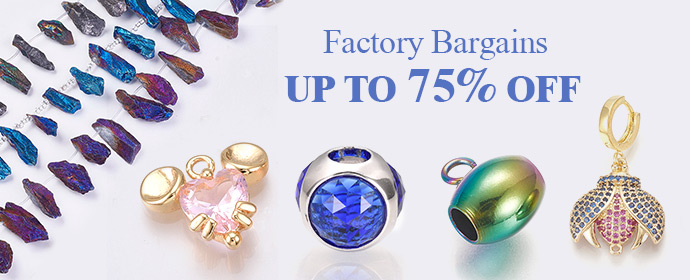Cluster setting rings use smaller gemstones that are densely set together, giving the illusion of larger gemstones—a distinct “cluster” look. Cluster rings, whether ornamented with a large central stone or an ensemble of equal-sized stones, frequently have diamonds grouped in geometric shapes such as squares or distinctive designs like flowers or starbursts. Many Cluster Rings have an old appeal.
When you’re buying a cluster setting ring, make sure the workmanship is superb. To get a symmetrical and visually appealing pattern, ensure that the smaller diamonds are securely and evenly positioned. Prices for cluster setting rings can vary greatly depending on the quality and carat size of the stones, as well as the complexity of the setting. Gemstone rings look stunning when put in this setting.
The center stone in the image is substantially less than the 1.5 carats shown, but the cluster arrangement provides the impression of one. The cluster of tiny jewels adds individuality to the Gemstone Ring while also increasing its size and luminosity. Unlike solitaire or three-stone settings, this arrangement is a popular choice due to its unique aesthetics and creative freedom.
Cluster Setting Types
Cluster configurations are classified into numerous varieties, each with its own set of patterns and features. Among the others, the flower cluster setting is particularly striking. It features exquisitely placed stones that resemble a blossoming flower. Another popular option is the halo cluster setting, which surrounds a core stone with a halo of smaller stones to create the illusion of a larger diamond. The geometric cluster setting adds a contemporary touch with its symmetrical arrangement of squares, triangles, and hexagons. Each variation of the cluster setting has its own unique charm, which contributes to its widespread popularity among Gemstone Jewelry designers.
Pros and Cons of Cluster Setting
When choosing a cluster setting in sterling silver jewelry, there are both pros and downsides to consider.
Pros:
Enhanced Brilliance: A cluster setting adds glimmer and brightness to the jewelry, creating the illusion of a larger, more dazzling stone by arranging little diamonds or gemstones in Gemstone Rings.
Tailored Designs: Because cluster settings are versatile, they may be used in a variety of designs and forms, allowing you to create a personalized design that reflects your preferences. Choosing stones in a variety of hues, shapes, and sizes makes it easier to create a genuinely unique item.
Cost Effectiveness: Despite its large and bold appearance, a cluster setup can provide a more prominent look at a reduced cost. For example, a ring with a modest center gemstone and a halo of smaller gemstones produces a big effect without costing a lot of money.
Sturdiness: Having numerous stones in a cluster setting increases its durability. If one stone becomes loose or displaced, the others can secure the setting, lowering the likelihood of losing the entire piece.
Cons:
Maintenance Challenges: Dealing with a cluster setting presents maintenance challenges, notably due to the presence of small stones. The delicate gaps between these stones attract dirt and dust, reducing the piece’s overall shine and brightness.
Damage Vulnerability: Cluster arrangements are particularly vulnerable to damage. Compared to a single-stone ring, the number of stones increases the danger of damage. Small stones in the cluster are readily chipped or scratched, and losing even one stone can have a significant influence on the overall appearance of the necklace.
In essence, while a cluster setting is an appealing and cost-effective option for jewelry, it requires rigorous attention to both maintenance and longevity.
How Can I Tell If a Cluster Ring Is Set?
Diamond cluster designs frequently include round brilliant cut diamonds set in prong settings. Designers, on the other hand, express their creativity by adding various diamond shapes, such as ovals, into the designs of diamond Cluster Earrings and Engagement Rings.
Prong settings are chosen above other options because they allow stones to be put tightly together. Common prongs shared by stones are frequently employed, reducing the use of metal.
The minimum use of metal enhances the little jewels, allowing each stone to emit maximum fire. This innovative approach gives the appearance of a single solitaire gemstone rather than multiple smaller gemstones clustered together. The skill of clustering is very important in gemstone jewelry, particularly floral motifs.
Another distinguishing feature of this setting is the use of a huge center stone surrounded by lesser diamonds. However, with designer Gemstone Jewelry, multiple designs can be effortlessly combined without emphasizing a central stone.
The total area where clustered gemstones are set exceeds that of a solitaire diamond of the same carat weight. The cause is simple: the space between multiple tiny diamonds within a piece of jewelry.
Why Should I Select a Cluster Set Engagement Ring?
The concept of a cluster Gemstone setting allows for new and exclusive designs that deviate from the usual classics. Choosing gemstone cluster Engagement Rings is a stunning and economical alternative to the traditional solitaire engagement Gemstones.
Cluster settings are versatile and go well with both modern and vintage jewelry designs. An antique cluster set Engagement Ring’s captivating old-world elegance arouses a deep emotional interest.
Despite appearing extremely heavy and expensive, these cluster-set engagement rings are far more reasonably priced because fewer gems are used.
How to Care for Jewelry With Cluster Setting
Jewelry with a cluster setting must be carefully maintained to retain its beauty and sparkle. To reduce the risk of breakage or stone loss, remove the jewelry before doing chores, working out, or swimming. It is advisable to keep it in a separate box or pouch to minimize scratching and tangling with other items. If a stone becomes loose or falls out, prompt repair is required to avoid further damage.
Recommend0 recommendationsPublished in Uncategorized





